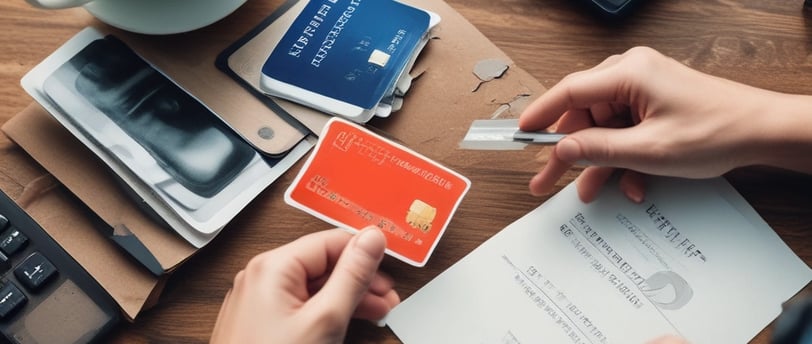How to Pay Off Debt with a Low Income: Practical Steps for Financial Freedom
Paying off debt can feel overwhelming, especially if you're living on a low income. However, it's possible to gain control over your finances and work towards becoming debt-free, even on a tight budget. Here are some practical steps to help you pay off debt while managing a limited income.
3 min read


1. Assess Your Debt Situation
The first step is understanding exactly how much you owe. List all your debts, including credit cards, loans, medical bills, or any other obligations. For each debt, note down the total amount owed, interest rate, and minimum monthly payment.
This will give you a clear picture of your financial situation and help you prioritize which debts to tackle first.
2. Create a Realistic Budget
A well-planned budget is key to making any debt repayment plan work. Track all your income and expenses, and categorize them into essential (like rent, utilities, and groceries) and non-essential (entertainment, dining out, etc.) expenses.
Identify areas where you can cut back, even if it’s just a little. Reducing spending in non-essential categories can free up more money to put toward debt repayment.
3. Choose a Debt Repayment Strategy
There are two main approaches to repaying debt:
The Debt Snowball Method: Pay off your smallest debt first while making minimum payments on the others. Once the smallest debt is paid off, move on to the next smallest. This approach can help build momentum and give you a psychological boost.
The Debt Avalanche Method: Focus on paying off the debt with the highest interest rate first, while making minimum payments on the others. This method minimizes the amount you pay in interest over time, which can save you money in the long run.
Choose the method that fits your personality and motivates you to keep going.
4. Negotiate Lower Interest Rates or Payments
If your income is low, you might struggle to keep up with high-interest debts. Contact your creditors and try to negotiate lower interest rates or monthly payments. Many creditors are willing to work with you, especially if you've been a reliable customer in the past. You can also look into debt consolidation options, where you take out one loan to pay off multiple debts. This can help reduce interest rates and simplify your payments, but be sure to consider the fees and terms before choosing this route.
5. Increase Your Income (Even if it’s Just a Little)
While this might not be an option for everyone, finding ways to earn additional income can accelerate your debt repayment journey. You don’t have to get a full-time job; consider side gigs or freelance work that align with your skills. Some examples of low-barrier income opportunities include:
Freelancing: Offer services like writing, graphic design, or social media management.
Online Surveys and Tasks: Websites like Swagbucks or Amazon Mechanical Turk allow you to earn money by completing small tasks.
Selling Unused Items: Look around your home for things you no longer need and sell them online or at a yard sale.
Even earning an extra $50 or $100 per month can make a big difference when put toward paying off debt.
6. Cut Back on Non-Essential Expenses
With a low income, every dollar counts. To free up more money for debt repayment, consider eliminating or reducing non-essential expenses. Here are some ideas:
Meal Prep: Plan your meals in advance and cook at home to save money on food.
Limit Entertainment Costs: Opt for free or low-cost activities, like hiking or visiting museums on free days.
Use Public Transportation: If possible, skip the car expenses (gas, insurance, maintenance) by using public transportation.
Making small sacrifices now can help you eliminate debt faster and ultimately improve your financial situation.
7. Seek Professional Help if Necessary
If you’re feeling stuck, consider reaching out to a credit counselor or financial coach. Many non-profit organizations offer free or low-cost services to help individuals with debt management. They can provide guidance on budgeting, negotiating with creditors, and creating a debt repayment plan. Comment below if you have any questions.
8. Stay Motivated and Be Patient
Paying off debt takes time, especially when you're working with a low income. It’s important to stay motivated and patient throughout the process. Celebrate small wins along the way, like paying off a debt or reaching a savings milestone.
Remember, paying off debt is a marathon, not a sprint. Every step you take brings you closer to financial freedom. Paying off debt with a low income can be challenging, but with determination and a solid plan, it's possible. By assessing your debt, creating a budget, and using effective repayment strategies, you can make progress toward a debt-free life. Stay disciplined, find ways to increase your income, and be patient with yourself. With time and persistence, you'll reach your financial goals.
